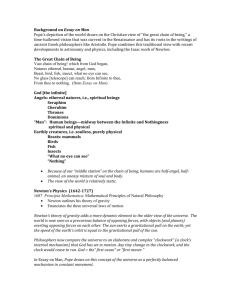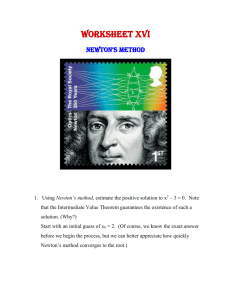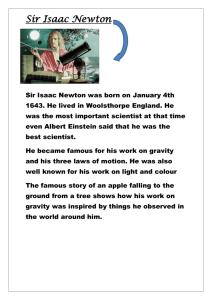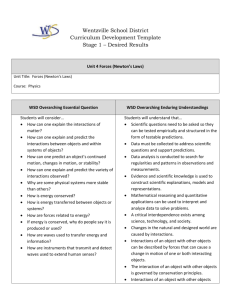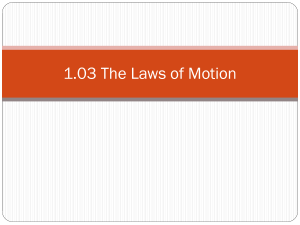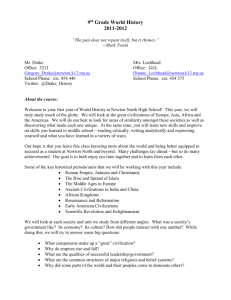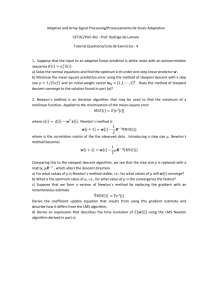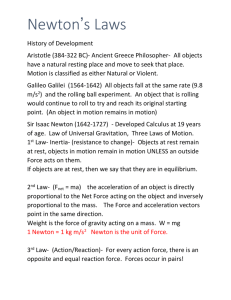Newton - FaradaySchools
advertisement
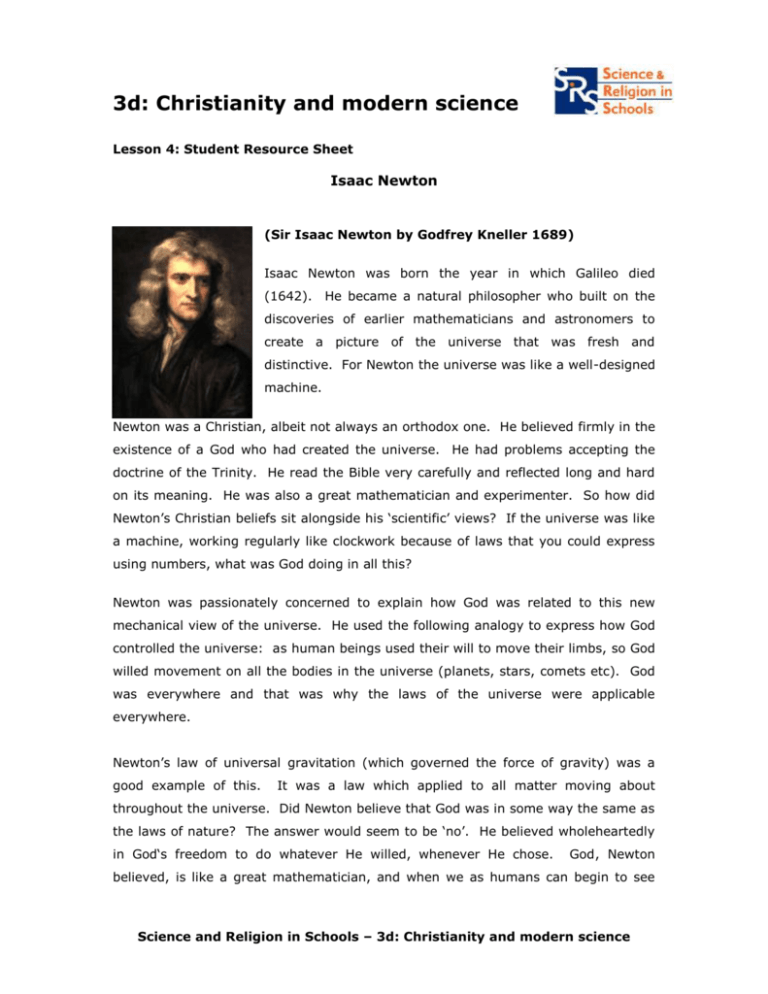
3d: Christianity and modern science Lesson 4: Student Resource Sheet Isaac Newton (Sir Isaac Newton by Godfrey Kneller 1689) Isaac Newton was born the year in which Galileo died (1642). He became a natural philosopher who built on the discoveries of earlier mathematicians and astronomers to create a picture of the universe that was fresh and distinctive. For Newton the universe was like a well-designed machine. Newton was a Christian, albeit not always an orthodox one. He believed firmly in the existence of a God who had created the universe. He had problems accepting the doctrine of the Trinity. He read the Bible very carefully and reflected long and hard on its meaning. He was also a great mathematician and experimenter. So how did Newton’s Christian beliefs sit alongside his ‘scientific’ views? If the universe was like a machine, working regularly like clockwork because of laws that you could express using numbers, what was God doing in all this? Newton was passionately concerned to explain how God was related to this new mechanical view of the universe. He used the following analogy to express how God controlled the universe: as human beings used their will to move their limbs, so God willed movement on all the bodies in the universe (planets, stars, comets etc). God was everywhere and that was why the laws of the universe were applicable everywhere. Newton’s law of universal gravitation (which governed the force of gravity) was a good example of this. It was a law which applied to all matter moving about throughout the universe. Did Newton believe that God was in some way the same as the laws of nature? The answer would seem to be ‘no’. He believed wholeheartedly in God‘s freedom to do whatever He willed, whenever He chose. God, Newton believed, is like a great mathematician, and when we as humans can begin to see Science and Religion in Schools – 3d: Christianity and modern science how he has put this universe together it causes only wonder and worship of God – nothing less. Some people have accused Newton of a belief in a too-distant God. His struggle with guilt for wrong doings in his youth, however, would not seem to suggest a belief in a distant God who set the universe in motion and then left it alone. Newton believed in a God who was involved in his creation, who ensured that the planets remained in their orbits. At various points in his life Newton was very seriously involved in alchemy believing it would help him to imitate processes in nature. Scholars today are still piecing together the evidence to find out more about Newton’s religious views but the overall picture is of a sincere believer in a God who designs, creates and then orders his world. A Prism: Newton wrote about the colour spectrum and optics One of Newton’s contributions to science was his work in optics. Focusing a ray of sunlight onto the surface of a prism, he showed that white light could be split into the coloured rays of the spectrum. He also showed that the coloured rays that emerged from the prism could be re-combined to form white light. Newton believed that that light was composed of small particles, but it was later shown that light also behaves like waves. The picture of the universe as a machine, developed throughout the seventeenth century, was important for Christianity. It forced Christians to reflect on the kind of God they believed in and on His relationship to the universe. How much was He involved in the day-to-day workings of the world? Was He still controlling everything or were the laws of nature doing all the work now? Was God a supreme mathematician who had designed the laws of nature to perfection? These questions are still being debated - largely because of the scientific activity of people like Galileo, Newton and others throughout the seventeenth century. Science and Religion in Schools – 3d: Christianity and modern science
